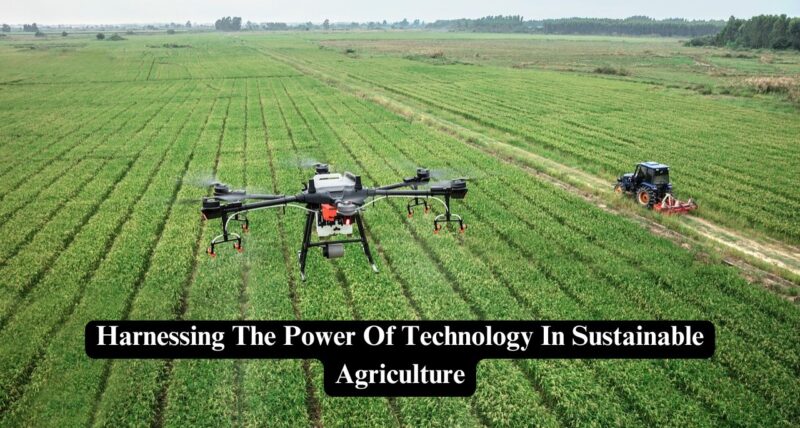Sustainable agriculture refers to the adoption of environmentally favorable agricultural practices that facilitate crop production. Technology is making strides in the domain of sustainability, enabling efficient application of resources and energy and reducing carbon emissions, etc. This blog post will explore the role played by technology in sustainable agriculture.
Precision Agriculture
Precision agriculture is a method of farm management that uses technology to improve the nurturing and nourishing of soil and crops. This process involves the paired use of Global Positioning Systems (GPS) and Geographic Information Systems (GIS) to improve crop growth. These help farmers by monitoring and gathering data on the variability of yields on their farms.
They collect and analyze data regarding pest infestations, which helps farmers develop safety measures. They also help determine the areas that require more fertilization. These systems also aid farmers in irrigation control and water management for their farms. Overall, this method increases productivity and preserves biodiversity with minimal but effective efforts.
Drone And Remote Sensing
Drones aid in executing smart agricultural techniques with their sensors and cameras. They perform multiple functions like geospatial imaging, seeding, precision spraying, and analysis of soils. They monitor crop growth and health status and give insights. This also aids in the early detection and treatment of diseases. They help detect and manage weed infestations.
Remote sensing improves yield prediction with details of production and revenue. Farmers can remotely observe their lands. They map out soil varieties across farms to accordingly develop agricultural strategies. With their capabilities, drones often reduce the time and expenses required in the maintenance of crops and soil.
Soil And Crop Management Technologies
There are various kinds of agricultural technologies that enhance soil and crop management. There are different types of soil sensors that measure several factors concerning soils like moisture, salinity, temperature, etc. The data collected from soil sensors can help carry out decisions regarding irrigation and crop management.
Based on data from soil moisture sensors, automated irrigation systems can schedule to give the required amount of water to soils. The sensors also help avert drought stress and overwatering. Crop rotation is another sustainable agricultural practice that enhances soil and crop health. It increases soil fertility, manages pest and weed growth, and promotes the growth of yields.
Sustainable Farming Equipment
With a move towards sustainable agricultural practices, more eco-friendly farming techniques are being developed and used. Energy efficiency is one of the aspects of sustainability. The agriculture industry is promoting the use of machines like irrigation technologies, engine block heaters, electric tractors, etc. These automate tasks while conserving energy. Electric farm vehicles make farming more environmentally friendly in many ways. They reduce waste of energy and decrease carbon emissions. These vehicles are also easier to maintain and save money used for diesel.
There are numerous innovative composting and waste management systems enabled by technology. Composting systems that are automated can decrease green gas emissions, among other things. The utilization of AI and biotechnology in reactor composting and vermicomposting, respectively, are some examples of utilizing technology in sustainable agriculture.
Genetic Engineering And Biotechnology
The disciplines of genetic engineering and biotechnology can be used to aid in increasing the quality and quantity of crops. GMOs, or genetically modified organisms, can enhance crop resilience. They can bring down emissions of greenhouse gases and increase crop immunity against pests and diseases.
Biotechnology can be used to manage pests and weeds that are detrimental to crop health. Genetic engineering can be applied to make plants resistant to harmful insects. Cutting-edge technologies can help control pests. Although advancements in agricultural biotechnology seem promising, certain ethical factors should be considered before their implementation. Their negative effects on the environmental balance and genetic diversity should be considered.
The blend of sustainability and technology poses numerous benefits for the agriculture industry. Using technology in sustainable agriculture is advantageous for both agriculture workers and the environment. It preserves nature while benefiting farmers through eco-friendly ways. With passing time and evolving technology, we must embrace advanced and sustainable agriculture practices for future sustenance.



